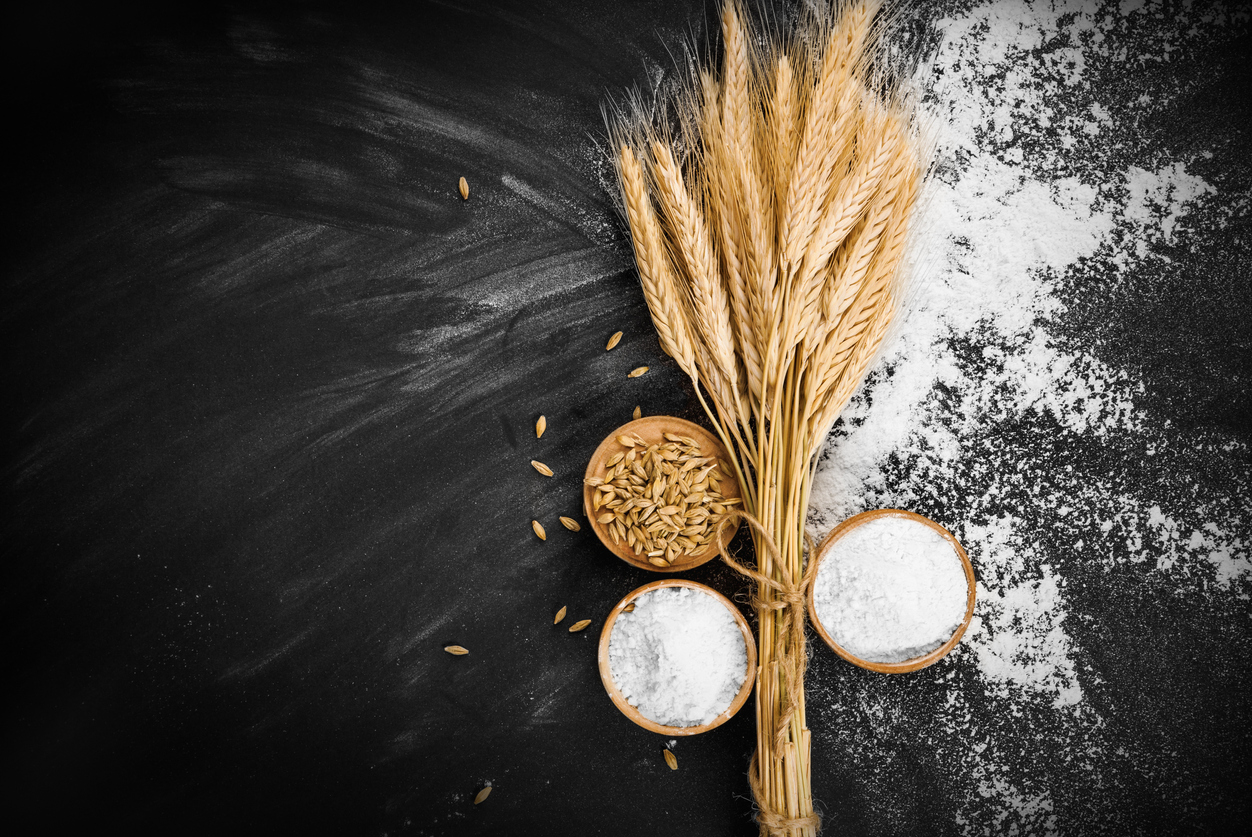The Power Trio: Exploring the Benefits of Oats Flour, Rye Flour, and Rapeseed
The Power Trio: Exploring the Benefits of Oats Flour, Rye Flour, and Rapeseed
Are you tired of the same old all-purpose flour in your recipes? It’s time to shake things up and unleash a trio of supercharged ingredients that will transform your culinary creations. Say hello to the power trio: oats flour, rye flour, and rapeseed! These three unsung heroes are about to take center stage in your kitchen, bringing an array of health benefits, unique flavors, and incredible versatility. Get ready to dive into this exploration of their impressive qualities and discover why they’re a game-changer for both your taste buds and well-being. Let’s embark on a tantalizing journey with oats flour, rye flour, and rapeseed – the ultimate dynamic trio!
Introduction: Why Flour and Rapeseed are the Power Trio
Introduction:
Flour and rapeseed oil are two essential ingredients in any kitchen. Flour is a staple food that has been a part of our diet for centuries, while rapeseed oil is a relatively new addition to the culinary world. However, when combined together, these two ingredients create a powerful trio that offers numerous health benefits. In this section, we will explore why flour and rapeseed are considered the power duo in cooking and baking.
The Nutritional Powerhouse:
When it comes to nutrition, both flour and rapeseed oil have their unique advantages. Flour is primarily made from grains such as oats and rye, which are rich in complex carbohydrates, fiber, vitamins, and minerals. These nutrients provide long-lasting energy, promote digestive health, and aid in weight management.
On the other hand, rapeseed oil is high in monounsaturated fats and omega-3 fatty acids – both of which are known for their heart-healthy properties. Additionally, it contains vitamin E and antioxidants that help boost the immune system and fight against free radicals.
Together as a Trio:
Individually, flour and rapeseed oil offer impressive nutritional benefits. But when used together in recipes such as breads or pastries, they create a powerhouse combination that can elevate your dishes’ flavor profile while providing an array of health benefits.
What is Oats Flour, Rye Flour, and Rapeseed?
Oats Flour:
Oats flour is a type of flour that is made from grinding oats, a whole grain cereal. It has recently gained popularity as a healthier alternative to traditional wheat flour due to its numerous health benefits.
One of the main benefits of oats flour is its high fiber content. Oats are rich in both soluble and insoluble fiber, which helps to regulate digestion and keep you feeling full for longer periods of time. This makes it an excellent choice for those looking to maintain or lose weight.
Additionally, oats flour is also a good source of protein, containing all nine essential amino acids that our bodies need for optimal functioning. This makes it a great option for vegetarians or vegans who may struggle with getting enough protein in their diet.
Another notable benefit of oats flour is its low glycemic index (GI). This means that it does not cause sudden spikes in blood sugar levels like refined flours do, making it a healthier option for those with diabetes or anyone trying to maintain stable blood sugar levels.
Rye Flour:
Rye flour is another type of whole grain flour that offers unique health benefits. It is made by grinding rye berries into powder and can be found in light, medium, or dark varieties depending on how much bran has been removed during the milling process.
Health Benefits of Oats Flour:
Oats flour, also known as oatmeal flour, is a nutritious and versatile alternative to traditional wheat flour. Made from ground oats, this gluten-free option has gained popularity in recent years due to its many health benefits. In this section, we will explore the specific ways in which oats flour can contribute to a healthy diet.
1. Rich in Nutrients:
Oats are packed with essential vitamins and minerals such as manganese, phosphorus, magnesium, copper, iron, zinc, and B vitamins. By using oats flour in your cooking and baking, you can easily incorporate these important nutrients into your daily diet. This powerhouse of nutrients helps support various bodily functions including metabolism and immune system health.
– High in Fiber
High in fiber, oats flour, rye flour, and rapeseed are the ultimate power trio when it comes to providing our bodies with essential nutrients and promoting overall health. In this section, we will delve into the many benefits of including these three ingredients in our diet and how their high fiber content plays a crucial role.
Fiber is an important component of our diet that often gets overlooked. It is a type of carbohydrate that cannot be digested by the body, but it has numerous health benefits. The recommended daily intake of fiber for adults is between 25-38 grams per day for women and men respectively.
Oats flour, rye flour, and rapeseed are all excellent sources of dietary fiber. Oats flour contains both soluble and insoluble fibers which have different functions in the body. Soluble fiber forms a gel-like substance in the digestive system that helps slow down digestion and keeps us feeling full for longer periods. On the other hand, insoluble fiber adds bulk to stool and helps regulate bowel movements.
Rye flour is also rich in both types of fibers but contains a higher percentage of insoluble fibers compared to oats flour. These fibers act as prebiotics in our gut, stimulating the growth of healthy bacteria which aids digestion and promotes a strong immune system.
– Lowers Cholesterol
Oats flour, rye flour, and rapeseed are three powerful ingredients that when combined together, create a nutritious and delicious power trio. One of the many benefits of this trio is its ability to lower cholesterol levels in the body.
High cholesterol levels can increase the risk of heart disease, stroke, and other health problems. Therefore, it is important to maintain healthy levels of cholesterol in our bodies. Incorporating oats flour, rye flour, and rapeseed into your diet can help achieve this goal.
Oats flour is rich in beta-glucan, a type of soluble fiber that has been scientifically proven to reduce LDL (bad) cholesterol levels in the blood. It does this by binding with bile acids in the digestive tract and preventing them from being reabsorbed into the body. This leads to an increased excretion of bile acids which then prompts the liver to use up more cholesterol from the blood to produce new bile acids. As a result, there is less LDL cholesterol circulating in the body.
Rye flour also contains beta-glucans similar to oats but in smaller amounts. However, studies have shown that consuming rye products can still have a positive effect on lowering LDL cholesterol levels due to its high content of insoluble fibers such as arabinoxylan and cellulose. These fibers act as a sponge for excess bile acids and carry them out of the body through feces.
– Boosts Energy
Oats flour, rye flour, and rapeseed are three powerful ingredients that can provide a significant boost of energy to your body. Incorporating these three ingredients into your diet can not only be delicious but also help you feel more energized throughout the day. Let’s take a closer look at how each of these ingredients contributes to boosting energy levels.
Oats Flour:
Oats flour is derived from ground oats, which are considered one of the healthiest grains on the planet. This nutrient-dense ingredient is packed with complex carbohydrates, high-quality protein, and fiber. When consumed, oats flour releases its energy slowly over time, providing a sustained source of energy for your body.
The slow-release of energy from oats flour helps regulate blood sugar levels and prevents sudden spikes or crashes in energy. This is especially beneficial for individuals with diabetes or those trying to maintain stable blood sugar levels.
Moreover, oats flour contains B vitamins such as thiamine and riboflavin, which play an essential role in converting food into energy. These vitamins also support brain function and mood regulation, helping you stay focused and alert throughout the day.
Rye Flour:
Similar to oats flour, rye flour is also rich in complex carbohydrates that release energy slowly. However, unlike other grains that contain simple carbs that quickly break down into glucose (sugar), rye has a low glycemic index (GI).
Health Benefits of Rye Flour:
Rye flour, made from grinding the whole grain rye kernels, has been a staple in traditional European cuisine for centuries. It is known for its distinct nutty flavor and dense texture, making it a popular ingredient in breads, pastries, and other baked goods. But beyond its delicious taste and versatile uses in the kitchen, rye flour also offers numerous health benefits that make it a valuable addition to any diet.
1) Rich in Nutrients: Rye flour is packed with essential nutrients such as fiber, protein, iron, magnesium, zinc, phosphorus, and B vitamins. In fact, one cup of cooked rye flour contains 16 grams of protein and 17 grams of fiber – both important components for maintaining overall health.
2) Supports Digestive Health: The high fiber content in rye flour plays a crucial role in promoting healthy digestion. Fiber helps regulate bowel movements and can prevent constipation by adding bulk to stools. Additionally, the specific type of fiber found in rye called arabinoxylan has been shown to have prebiotic properties that support the growth of beneficial bacteria in the gut.
3) Controls Blood Sugar Levels: Rye flour has a low glycemic index (GI), meaning it does not cause rapid spikes in blood sugar levels like refined flours do. This makes it an excellent option for people with diabetes or those looking to manage their blood sugar levels more effectively.
– Rich in Nutrients
Oats flour, rye flour, and rapeseed are three powerful ingredients that offer a wide range of health benefits. These ingredients are not only delicious but also pack a nutritional punch, making them an excellent choice for incorporating into your diet. In this section, we will delve deeper into the nutrient profile of these ingredients and explore why they are considered to be rich in nutrients.
Oats flour is made from ground oats, which are whole grains known for their high fiber content. Oats are also a good source of plant-based protein, with one cup providing around 11 grams of protein. This makes it an ideal ingredient for those following a vegetarian or vegan diet. Additionally, oats contain various essential vitamins and minerals such as manganese, phosphorus, magnesium, zinc, and B vitamins like thiamine and folate.
Rye flour is another nutritious option that offers several health benefits. It is higher in fiber than wheat flour and contains more vitamin E and calcium. Rye is also rich in antioxidants that help fight against free radicals in the body and protect against chronic diseases like cancer and heart disease. Furthermore, rye has been found to have a lower glycemic index compared to other grains, meaning it can help regulate blood sugar levels.
– Helps with Digestion
Digestion is a vital process in our bodies that allows us to break down and absorb nutrients from the foods we eat. However, with the rise of processed and refined foods in our diets, many people struggle with digestive issues such as bloating, constipation, and indigestion. This is where incorporating oats flour, rye flour, and rapeseed into your diet can make a significant difference.
Oats flour is known for its high fiber content, making it an excellent addition to aid digestion. The insoluble fiber found in oats helps move food through the digestive tract more efficiently by adding bulk to stool and promoting regular bowel movements. This can alleviate symptoms of constipation and promote a healthy gut environment.
Moreover, oats contain beta-glucan, a type of soluble fiber that acts as a prebiotic. Prebiotics serve as food for the beneficial bacteria in our gut, helping them thrive and support overall digestive health. A healthy balance of gut bacteria has been linked to improved digestion and reduced inflammation.
Rye flour also offers impressive benefits for digestion due to its unique combination of soluble and insoluble fibers. Like oats flour, rye contains beta-glucan that promotes the growth of beneficial gut bacteria. Additionally, rye contains arabinoxylans – another type of soluble fiber – which has been shown to increase stool frequency and improve overall gastrointestinal function.
– Anti-inflammatory Properties
– Oats flour, rye flour, and rapeseed are not only nutritious ingredients but also possess anti-inflammatory properties that can benefit our overall health.
– Inflammation is the body’s natural reaction to injury or infection. However, chronic inflammation can lead to various health issues such as heart disease, diabetes, and autoimmune disorders.
– The high levels of antioxidants in oats flour help combat inflammation by neutralizing free radicals in the body. These free radicals cause oxidative stress, which triggers an inflammatory response.
– Rye flour contains a unique compound called arabinoxylan that has been found to have anti-inflammatory effects. This compound may help reduce inflammatory markers in the body and lower the risk of chronic diseases.
– Rapeseed oil is rich in omega-3 fatty acids, which have been shown to have potent anti-inflammatory effects. These fatty acids help decrease the production of pro-inflammatory molecules in the body and promote the production of anti-inflammatory ones.
– Incorporating these three ingredients into your diet can provide a powerful combination for fighting inflammation and promoting overall wellness.
– Oats flour, rye flour, and rapeseed contain fiber that feeds beneficial bacteria in our gut. A healthy balance of gut bacteria has been linked to reduced levels of inflammation in the body.
– The beta-glucans present in oats flour have also been shown to improve immune function and reduce inflammation by stimulating white blood cells’ activity.
Health Benefits of Rapeseed:
Rapeseed, also known as canola oil, is a versatile and nutritious ingredient that has been gaining popularity in recent years. With its subtle nutty flavor and high smoke point, rapeseed has become a staple in many kitchens around the world. But aside from its culinary uses, rapeseed also offers numerous health benefits that make it an excellent addition to your diet.
1. Heart Health: Rapeseed is rich in monounsaturated and polyunsaturated fats which are known to be heart-healthy. These healthy fats help to lower LDL (bad) cholesterol levels while increasing HDL (good) cholesterol levels, thus reducing the risk of heart disease. In fact, studies have shown that regular consumption of rapeseed oil can significantly improve overall cardiovascular health.
2. Anti-inflammatory Properties: Rapeseed contains a compound called alpha-linolenic acid (ALA), which is an omega-3 fatty acid with powerful anti-inflammatory properties. Chronic inflammation is linked to various diseases such as arthritis, cancer, and Alzheimer’s disease. Including rapeseed in your diet can help reduce inflammation and protect against these conditions.
3. Rich in Vitamin E: Rapeseed oil is an excellent source of vitamin E, a powerful antioxidant that helps protect cells from damage caused by free radicals. It also plays a crucial role in maintaining healthy skin and hair while boosting the immune system.
– Good Source of Omega
When it comes to nutrition, one of the most important components that we often overlook is omega fatty acids. These essential fats play a crucial role in maintaining our overall health and well-being, from improving heart health to promoting brain function. And lucky for us, oats flour, rye flour, and rapeseed are all excellent sources of omega fatty acids.
Omega-3 and Omega-6 are the two main types of omega fatty acids that our body needs. They are considered essential because our bodies cannot produce them on their own and must obtain them from food sources. Oats flour, rye flour, and rapeseed contain both of these types of fatty acids in abundance.
Firstly, let’s talk about oats flour. This whole grain flour is made from grinding whole oats into a fine powder. It is a great source of both omega-3 and omega-6 fatty acids. In fact, one cup of cooked oatmeal contains approximately 0.2 grams of omega-3s and 1.7 grams of omega-6s. These essential fats help reduce inflammation in the body and have been linked to improved heart health by lowering blood pressure and reducing the risk of heart disease.








Comments are closed.